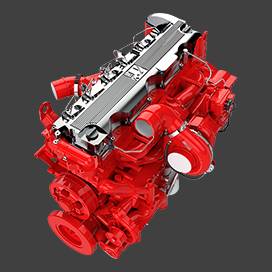Dec . 31, 2024 19:16 Back to list
Effects of Excessive Heat on Brake Drums and Their Performance in Vehicles
What Happens When Your Brake Drums Get Very Hot?
Brake drums are essential components in the braking systems of many vehicles, particularly those equipped with drum brakes, such as trucks and buses. Understanding the effects of high temperatures on brake drums can prevent serious mechanical failures and ensure safe driving conditions.
The Importance of Brake Drums
Brake drums work in conjunction with brake shoes to create friction and slow down a vehicle. When the driver presses the brake pedal, the brake shoes are pushed against the inside surface of the drum, converting kinetic energy into thermal energy via friction. This process is crucial for effective braking, especially under heavy loads and high-speed conditions.
Causes of High Temperatures
Brake drums can become extremely hot due to several factors
1. Excessive braking Frequent or hard braking, especially when descending steep grades, can generate significant heat. 2. Overloaded vehicles Heavier loads increase the amount of friction produced in the braking process, leading to higher temperatures. 3. Poorly functioning braking systems Issues such as worn brake shoes, misaligned components, or insufficient brake fluid can lead to less efficient braking and increased heat. 4. Driving conditions Stop-and-go traffic, high-speed driving, and aggressive driving behaviors can exacerbate heat build-up in brake components.
Effects of High Temperatures on Brake Drums
When brake drums become too hot, several problems can arise, including
1. Expansion and warping As temperatures rise, the material of the brake drum can expand. If the expansion is uneven or extreme, it can lead to warping. Warped drums result in uneven contact with the brake shoes, causing a reduction in braking efficiency. This can also lead to vibrations during braking, making the vehicle feel unstable.
2. Brake fade High temperatures can lead to brake fade, a condition where the braking response decreases significantly. As the brake drum heats up, the friction material on the shoes may become less effective, resulting in longer stopping distances. In extreme cases, brake fade can cause complete brake failure, putting the driver and others on the road at risk.
what happens when your brake drums get very hot cdl

3. Cracking Continuous exposure to high temperatures can cause the brake drum material to develop cracks. This is especially common in situations where the brakes are repeatedly engaged and released rapidly, leading to thermal cycling. A cracked drum must be replaced immediately, as it poses severe safety risks.
4. Increased wear Overheated brake drums can accelerate wear on both the drums and brake shoes. This results in more frequent replacements, increasing maintenance costs and downtime.
5. Fluid boiling In vehicles with hydraulic braking systems, excessive heat can cause brake fluid to boil. Boiling brake fluid creates vapor bubbles, which compress and can lead to a spongy brake pedal feel. This diminishes the driver's ability to effectively control the vehicle’s speed, posing serious hazards.
Preventing Overheating
To maintain optimal braking performance and prevent overheating of brake drums, consider the following tips
1. Regular inspection Routine checks of the braking system can help identify issues before they lead to overheating. Ensure that brake shoes, drums, and hydraulic systems are in good condition.
2. Avoid excessive loads Be mindful of the vehicle's weight limits. Overloading can strain the braking system, leading to overheating.
3. Use engine braking When driving downhill, using engine braking can reduce reliance on the brake system, helping to keep brake temperatures in check.
4. Maintain a safe following distance This allows for gentler, progressive braking rather than abrupt stops, which can reduce heat build-up in the brake drums.
5. Upgrade components if necessary If frequent overheating occurs, consider upgrading to higher-performance brake systems designed to handle more heat without degrading performance.
In conclusion, while brake drums are crucial for a vehicle's safety, they can pose significant risks when subjected to high temperatures. Understanding the causes and effects of overheating, coupled with preventive measures, can enhance vehicle safety and performance on the road. Always prioritize regular maintenance and address any braking concerns promptly to ensure the longevity of your braking system.
-
Scania Brake Drums: OEM Quality for Optimal Safety & Durability
NewsAug.16,2025
-
R.V.I: Advanced Remote Visual Inspection for Precision
NewsAug.15,2025
-
Discover HYUNDA: Innovative Vehicles, Equipment & Solutions
NewsAug.14,2025
-
R.V.I: Unlock Advanced Insights & Real-time Performance
NewsAug.13,2025
-
Kamaz Brake Drum: Durable & Reliable for Heavy Duty Trucks
NewsAug.12,2025
-
Heavy Duty Iveco Brake Drum - Premium Quality & Safety
NewsAug.11,2025
